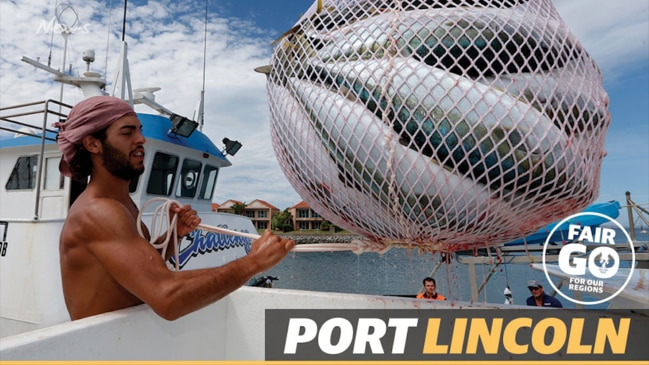Major funding boost to help researchers in the battle against oyster virus
The battle against Pacific Oyster Mortality Syndrome has ramped up with a funding boost worth $750,000.

SA Business
Don't miss out on the headlines from SA Business. Followed categories will be added to My News.
Smoky Bay oyster farmers Colleen and Jeff Holmes have had to make some major changes to the way they do business in the wake of the devastating Pacific Oyster Mortality Syndrome virus.
So, the couple has welcomed news the fight against POMS will receive a major boost through $750,000 in research funding. It will help develop oysters resistant to the disease.
The Holmes’s business, SA Premium Oysters, had to retrench a staff member after the disease devastated the supply of their spat, or oyster larvae, in 2017.
“POMS is one of the main reasons we’ve had to diversify our business into oyster farm tours,” Mrs Holmes said. The couple is launching their tours next month, to keep the business going through the lower oyster supply period.
“That could be one positive to come out of this, with the farm tour we want to put Smoky Bay on the map,” Mrs Holmes said.
Of the $750,000 in research funding, $260,000 will come from the State Government and the rest from various industry partners.
Primary Industries Minister Tim Whetstone said the funding would help provide POMS-resistant broodstock for commercial spat production.
Fisheries Research and Development Corporation’s portfolio manager Wayne Hutchinson said the funding would allow important research to continue.
SA Oyster Growers’ Association chief executive Trudy McGowan said developing POMS-resistant oysters would be a game changer for the industry.
“This research is vital in ensuring the long-term viability of the South Australian oyster farming industry,” Ms McGowan said.
“Any research and development that can future-proof the industry is very much welcomed.”
Feral oysters affected by the disease were detected in the Port River last year, but action by the State Government and industry meant the virus has not been detected in commercial growing areas.


